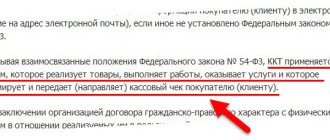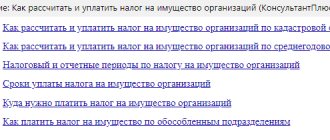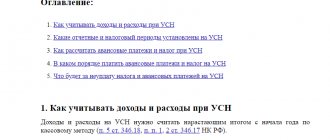Do I need to pay tax on a car purchased in 2013?
The benefit for movable property registered on January 1, 2013 also applies to cars. However, this does not apply to transport registered during the reorganization and liquidation of legal entities, as well as received or purchased from a related party (Clause 2 of Article 105.1 of the Tax Code of the Russian Federation).
This means that a car purchased by a company after the specified date is not subject to tax, unless, of course, the seller was an interdependent person.
Read more about the impact of interdependence on property tax in the article “Property tax and interdependent persons (nuances)” .
Article 374 of the Tax Code of the Russian Federation. Object of taxation (current version)
The objects of taxation for Russian organizations are movable and immovable property recorded on the balance sheet as fixed assets.
In accordance with the amendments made by Federal Law dated November 29, 2012 N 202-FZ to paragraph 4 of Article 374 of the Tax Code of the Russian Federation, movable property registered as a fixed asset after January 1, 2013 is not recognized as an object of taxation.
As a general rule, taxpayers of corporate property tax are organizations that hold balance sheets of movable and immovable property (fixed assets), unless otherwise established by the Tax Code of the Russian Federation.
Arbitrage practice.
The Constitutional Court of the Russian Federation, in Ruling No. 451-O dated December 14, 2004, indicated that within the meaning of paragraph 1 of Article 38 and Article 374 of the Tax Code of the Russian Federation, the object of taxation with the corporate property tax is elements of the separate property of a legal entity, taken into account on its balance sheet as fixed assets, that is, those assets of the organization that form the economic basis of its business activities.
Arbitrage practice.
The First Arbitration Court of Appeal in the Resolution dated February 14, 2012 in case No. A11-3011/2011 noted that, within the meaning of Article 374 of the Tax Code of the Russian Federation, the criterion for classifying property as objects of taxation is their accounting on the balance sheet as fixed assets in accordance with the established accounting procedure accounting.
Attention.
The Ministry of Finance of Russia in a letter dated September 27, 2013 N 03-05-05-01/40174 indicated that the object of taxation for corporate property tax is movable property recorded in accounting as part of fixed assets as of January 1, 2013, and also real estate recorded on the balance sheet as fixed assets in the manner established for accounting.
Attention.
The Ministry of Finance of Russia in a letter dated November 13, 2013 N 03-05-05-01/48376 explained that movable property accepted by the reorganized organization in the order established for accounting on the balance sheet in 2013 as part of fixed assets, including under transfer act in connection with reorganization in the form of merger (transformation) of legal entities is not recognized as an object of taxation for the property tax of organizations by virtue of subparagraph 8 of paragraph 4 of Article 374 of the Tax Code of the Russian Federation.
Attention.
The Federal Tax Service of Russia, in a letter dated February 26, 2013 N BS-4-11/ [email protected], drew attention to the fact that organizations are exempt from taxation on the property tax of organizations in relation to nuclear installations used for scientific purposes, storage facilities for nuclear materials and radioactive substances and radioactive waste storage facilities.
Subparagraph “a” of paragraph 5 of Article 1 of the Federal Law of November 29, 2012 N 202-FZ “On Amendments to Part Two of the Tax Code of the Russian Federation” (hereinafter referred to as Federal Law N 202-FZ) clause 9 of Art. 381 of the Code is declared invalid.
At the same time, paragraph 3 of Art. 1 of Federal Law N 202-FZ, an amendment was made to paragraph 4 of Article 374 of the Code in terms of supplementing the list of objects that are not recognized as objects of taxation for the property tax of organizations, with subparagraph 4 “nuclear installations used for scientific purposes, storage facilities for nuclear materials and radioactive substances and radioactive waste storage facilities."
Taking into account the above, until January 1, 2013, in accordance with paragraph 9 of Article 381 of the Tax Code of the Russian Federation, organizations were exempt from taxation with the corporate property tax in relation to nuclear installations used for scientific purposes, storage facilities for nuclear materials and radioactive substances and radioactive waste storage facilities.
From January 1, 2013, nuclear installations used for scientific purposes, storage facilities for nuclear materials and radioactive substances and radioactive waste storage facilities are not subject to taxation under the corporate property tax and, therefore, are not subject to corporate property tax.
Regarding the composition of tax-free property of storage facilities for nuclear materials and radioactive substances, radioactive waste storage facilities, we inform you as follows.
Article 3 of the Federal Law of November 21, 1995 N 170-FZ “On the Use of Atomic Energy” (hereinafter referred to as Law N 170-FZ) storage points for nuclear materials and radioactive substances, storage points, radioactive waste storage facilities (hereinafter referred to as storage points) are defined as stationary objects and structures not related to nuclear installations, radiation sources, intended for the storage of nuclear materials and radioactive substances, storage or disposal of radioactive waste.
According to Article 48 of Law N 170-FZ, storage or burial of radioactive waste is permitted only in storage points specially designed for this purpose. Storage and burial of radioactive waste are carried out in accordance with the Federal Law of July 11, 2011 N 190-FZ “On the management of radioactive waste and on amendments to certain legislative acts of the Russian Federation” (hereinafter referred to as Law N 190-FZ), other federal laws, laws of the constituent entities of the Russian Federation, regulatory legal acts of the President of the Russian Federation, regulatory legal acts of the Government of the Russian Federation, as well as regulatory legal acts of federal executive authorities, organizations carrying out legal regulation in the field of the use of atomic energy.
In accordance with paragraph 4 of Article 9 of Law N 190-FZ, the property of a storage point as a property complex includes property necessary to ensure its safe operation, including land plots, buildings, structures, equipment, rights to use subsoil plots, water bodies and other natural objects.
Taking into account the above, the property of a storage point not subject to tax on the property of organizations should include all the property necessary to ensure its safe functioning, which is part of the property complex of the storage point and is recognized as an object of taxation for the corporate property tax.
Attention.
The Ministry of Finance of Russia, in a letter dated November 25, 2013 N 03-05-05-01/50817, emphasized that in order to avoid double taxation, taking into account paragraph 3 of Article 374 of the Code, regardless of the registration of the real estate object on the balance sheet of the lessee, a foreign organization (lessor) that does not carry out activities in the Russian Federation through a permanent representative office, is recognized as a taxpayer of the property tax of organizations and determines the tax base in relation to the real estate object of which it is the owner, in the manner established by paragraph 2 of Article 375 of the Tax Code of the Russian Federation, based on the inventory value, and from January 1 2014 - in the manner established by subparagraph 3 of paragraph 1 of Article 378.2 of the Tax Code of the Russian Federation, based on the cadastral value (as amended by Federal Law dated November 2, 2013 N 307-FZ).
Attention.
The Ministry of Finance of Russia, in a letter dated August 20, 2013 N 03-05-04-01/33917, drew attention to the fact that subclause 8 of clause 4 of Article 374 of the Tax Code of the Russian Federation applies regardless of the energy efficiency class of movable property.
Comment source:
“ARTICLE-LINE COMMENTARY TO CHAPTER 30 OF THE TAX CODE OF THE RUSSIAN FEDERATION “PROPERTY TAX OF ORGANIZATIONS”
Yu.M. Lermontov, 2014
Are modular buildings subject to tax?
Modular buildings do not comply with the definition of property classified as real estate (clause 1 of Article 130 of the Civil Code of the Russian Federation). Therefore, when registered from 01/01/2013, they are also entitled to a property tax benefit.
At the same time, modular buildings registered before 01/01/2013 and included in the OS will be subject to property tax (clause 1 of Article 374 of the Tax Code of the Russian Federation ). For example, a company will be forced to pay tax on a change house accounted for in this way.
To learn about what changes regarding the movable property benefit will come into force in 2021, read the material “The issue of the property benefit for movable property will be decided by the regions .
You can find more complete information on the topic in ConsultantPlus. Free trial access to the system for 2 days.
How has real estate taxation changed?
There will be only two exceptions when changes in the cadastral value of a land plot or other real estate are taken into account in current and past periods:
1. The cadastral value is set at the market value. To calculate taxes, the market value will be used from the date of application of the variable cadastral value. Until an amendment was made to the Code, the Federal Tax Service explained: recalculation of taxes at market value is possible only from January 1 of the year in which the taxpayer applied to the budgetary institution;
2. The current or retrospective application of the changed cadastral value is provided for by the Law on Cadastral Valuation.
In addition, if the value of a property included in the regional list has not been determined at the beginning of the year, then according to the new rules, tax must be paid, but at the average annual value. This applies to shopping centers, business centers, premises in them, offices, catering facilities and consumer services. Previously, the Ministry of Finance explained that in such a situation no tax is paid at all.
What changes will come into force on January 1, 2021
First, about salary taxes.
From January 1, 2021, the list of income not subject to personal income tax is being supplemented (Article 217 of the Tax Code of the Russian Federation). Such income now includes reimbursement amounts for housing costs.
A closed list of income not subject to insurance premiums has also been added. It included the amount of compensation for expenses of the contractor under the GPA and reimbursement of expenses for housing (Article 422 of the Tax Code of the Russian Federation).
The transport tax was also affected. From January 1, 2021, a procedure was established for the interaction of the taxpayer with the inspectorate in the event of the loss or destruction of a vehicle. If the car is destroyed, transport tax will not be charged from the moment of its destruction. To do this, the owner of the vehicle must submit an application. And the inspection will independently check and confirm the information received.
What changes will take effect on December 23, 2021
In a month, that is, from December 23, 2021, the threshold for collecting tax debts will be raised. Within a year from the date of payment of the arrears or from the moment when the amount of penalties exceeded 10,000 rubles, inspectors send a demand for payment of the debt on penalties. Previously, this threshold was 3,000 rubles (Articles 48, 70 of the Tax Code of the Russian Federation).
Also, from December 23, the application procedure for the return of interest accrued to the taxpayer for late return of overpayments of taxes by the inspectorate is canceled. An application for the return of such interest will no longer be required. The tax office will transfer them itself (clause 10, article 78 of the Tax Code of the Russian Federation). Let us remind you that this only applies to interest accrued on amounts not returned within the period from the date of the decision to return the overpayment.









